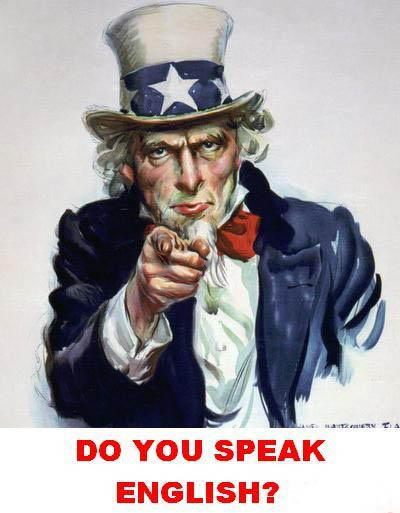
- •Тема I. Вводно-коррективный курс
- •Vocabulary exercises
- •Unit 2. My Biography Моя биография topical vocabulary
- •Introductory text My Biography
- •Compare
- •Remember!
- •Unit 3. Kazan State Medical University Казанский государственный медицинский университет
- •Topical vocabulary
- •Introductory text Kazan State Medical University
- •Vocabulary exercises
- •Unit 4. Working Day of a pharmaceutical Student Рабочий день студента фармацевтического факультета
- •Topical vocabulary
- •Introductory text Working Day of a pharmaceutical Student
- •Vocabulary exercises
- •Unit 5. Our English Lesson. Урок английского языка
- •Topical vocabulary
- •Introductory text Our English Lesson
- •Vocabulary exercises
- •Questionnaire
- •Vocabulary exercises
- •Are you a good student?
- •Theme II. What pharmacy is
- •Topical vocabulary Definition of the pharmacy
- •Vocabulary exercises
- •Community Pharmacy
- •Plural of nouns
- •Possessive’s
- •Опущение некоторых слов после существительных в притяжательном падеже
- •TexTs for written translation Clinical pharmacy
- •International Pharmaceutical Federation
- •Theme III. Pharmaceutical training in the united kingdom
- •Topical vocabulary
- •Introductory text The School of Pharmacy University of London
- •Vocabulary exercises
- •TexTs for reading Pharmaceutical Training in English-speaking countries
- •The Strategic Plan of the American College of Clinical Pharmacy
- •Grammar comparatives and superlatives
- •Irregular comparison
- •Neither….Nor
- •Theme IV. Development of pharmacy in the world
- •Topical vocabulary
- •Internet Pharmacy
- •The future of pharmacy
- •Pharmacy Practice in 2015
- •Introductory text The development of Pharmacy in the world
- •Vocabulary exercises
- •TexTs for written translation
- •Hospital pharmacy
- •Consultant pharmacy
- •Compounding pharmacy
- •Вопросительная форма
- •Написание некоторых глаголов с окончанием –s
- •Past simple
- •V erbs
- •Past Simple используется:
- •Наречия времени, с которым используется Past Simple
- •Написание глаголов с окончанием –ed:
- •Future simple Future Simple используется:
- •Наречия времени, с которыми используется Future Simple:
- •Спряжение глаголов в Future Simple
- •Shall используется:
- •Theme V. Parts of the body and organ systems
- •Topical vocabulary
- •Introductory text Parts of the Body
- •Vocabulary exercises
- •TexTs for written translation
- •Human musculoskeletal system
- •Human cardiovascular system
- •Funny reading
- •Infinitive without to (Examples: go, speak)
- •Infinitive with to (Examples: to go, to speak)
- •Modal verbs
- •Passive structure
- •Theme VI. In the chemical laboratory
- •Topical vocabulary
- •Introductory text
- •In the chemical Laboratory
- •Vocabulary exercises
- •Measurements
- •Text for written translation o utstanding Russian Chemist d.I. Mendeleev
- •Grammar present progressive Present Progressive используется:
- •Наречия времени, с которыми используется Present Progressive:
- •Спряжение глаголов в Present Progressive
- •Past progressive
- •Theme VII. Pharmaceutical chemistry
- •Topical vocabulary
- •Introductory text Pharmaceutical Chemistry
- •Vocabulary exercises
- •Texts for written translation Drug Discovery
- •Lead Optimization
- •Process chemistry and Development
- •Funny and useful reading
- •Grammar present perfect Present Perfect используется:
- •Наречия времени, с которыми используется Present Perfect:
- •Спряжение глаголов в Present Perfect:
- •Написание глаголов с окончанием -ed
- •Theme VIII. Medicinal plants
- •Topical vocabulary
- •Introductory text Medicinal Plants
- •Vocabulary exercises
- •TexTs for written translation Herbal Medicine
- •Preservation of Arnica Montana l.
- •Theme IX. Pharmacognosy
- •Topical vocabulary
- •Introductory text Pharmacognosy
- •Vocabulary exercises
- •TexTs for written translation Natural products chemistry
- •Loss of biodiversity
- •Theme X. At the chemist’s
- •Topical vocabulary
- •Introductory text At the Chemist’s
- •Vocabulary exercises
- •The Pharmacist
- •Chloraseptic
- •TexTs for written translation
- •At the Chemist’s
- •Tetracycline
- •Funny and useful reading
- •Women and Men
- •It’s a man’s world…
- •Theme XI. Technology of drugs
- •Topical vocabulary
- •Introductory text Technology Trends of Drug Delivery and Development
- •Stages in drug discovery and development
- •Vocabulary exercises
- •An overview of drug delivery technologies
- •TexTs for written translation Structure-Based Enhancement Techniques
- •Theme XII. Pharmacology
- •Topical vocabulary
- •Introductory text Pharmacology
- •Vocabulary exercises
- •Clinical pharmacology
- •TexTs for written translation Neuropharmacology
- •Psychopharmacology
- •Contents
Unit 5. Our English Lesson. Урок английского языка

Topical vocabulary
popular 1. популярный
important 2. важный
language 3. язык
questions 4. вопросы
words 5. слова
expressions 6. выражения
blackboard 7. классная доска
mistakes 8. ошибки
patience 9. терпение
compulsory 10. обязательный
easy 11. легкий
long 12. длинный
slow 13. медленный
necessary 14. необходимый
secondary school 15. средняя школа
higher school 16. высшая школа
mutual understanding 17. взаимопонимание
widespread 18. широко распространенный
to compare 19. сравнивать
to repeat 20. повторять
to correct 21. исправлять
to retell 22. пересказывать
to communicate 23. общаться
to develop 24. развивать
desk 25. парта
usually 26. обычно
absolutely 27. совершенно, безусловно
Introductory text Our English Lesson
He, who knows no foreign language,
does not know his own one.
Goethe
E nglish
is a very popular language. Today English is the language of the
world. Over 350 million people speak it. Statistically it is the most
widespread language on the Earth. Many states call English their
official language. But English is also the language of international
communication. Many people whose languages are different, can
understand each other if they speak English. English is the language
of progressive science and technology.
nglish
is a very popular language. Today English is the language of the
world. Over 350 million people speak it. Statistically it is the most
widespread language on the Earth. Many states call English their
official language. But English is also the language of international
communication. Many people whose languages are different, can
understand each other if they speak English. English is the language
of progressive science and technology.
Learning foreign languages is compulsory in all the secondary and higher schools. At the Kazan State Medical University we study English too. It is very interesting to learn English, and you can understand your own language better, if you can compare two languages.
O n
the English lessons the teacher usually asks us some questions. We
learn many new words and expressions. We also repeat old words and
write them on the blackboard or in the copy-books. We try to answer
well and receive excellent marks. We sometimes make mistakes and
teacher corrects them. We like to speak English on the lessons. We
sometimes work at the computer and do different tests. We read about
medical education in the USA and Great Britain
n
the English lessons the teacher usually asks us some questions. We
learn many new words and expressions. We also repeat old words and
write them on the blackboard or in the copy-books. We try to answer
well and receive excellent marks. We sometimes make mistakes and
teacher corrects them. We like to speak English on the lessons. We
sometimes work at the computer and do different tests. We read about
medical education in the USA and Great Britain
We ask and answer different questions. We retell texts. We work hard on the lessons to know it well. Now English is very important because we want to communicate with other people. We also want to read scientific books and magazines in original. Foreign language helps us to develop mutual friendship and understanding.
Learning a foreign language is not easy thing. It is a long and slow process that takes a lot of time and patience. But to know English is absolutely necessary for every educated person, for every good specialist.
Exercise 1. Comprehension questions.
What is the language of international communication?
Why do people learn foreign language?
Is English the official language of Russia?
Do many people speak English?
Do you know many words and expressions?
How often do you make mistakes?
Do you like to speak English on the lessons?
Do you work hard on the English lessons?
